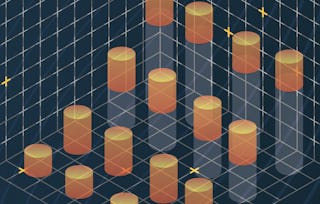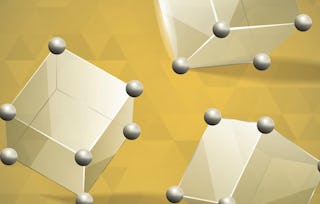Factorial experiments are often used in factor screening.; that is, identify the subset of factors in a process or system that are of primary important to the response. Once the set of important factors are identified interest then usually turns to optimization; that is, what levels of the important factors produce the best values of the response. This course provides design and optimization tools to answer that questions using the response surface framework. Other related topics include design and analysis of computer experiments, experiments with mixtures, and experimental strategies to reduce the effect of uncontrollable factors on unwanted variability in the response.

Response Surfaces, Mixtures, and Model Building
Ends soon: Gain next-level skills with Coursera Plus for $199 (regularly $399). Save now.

Response Surfaces, Mixtures, and Model Building
This course is part of Design of Experiments Specialization

Instructor: Douglas C. Montgomery
5,060 already enrolled
Included with
(67 reviews)
What you'll learn
Conduct experiments w/computer models and understand how least squares regression is used to build an empirical model from experimental design data
Understand the response surface methodology strategy to conduct experiments where system optimization is the objective
Recognize how the response surface approach can be used for experiments where the factors are the components of a mixture
Recognize where the objective of the experiment is to minimize the variability transmitted into the response from uncontrollable factors
Skills you'll gain
Details to know

Add to your LinkedIn profile
8 assignments
See how employees at top companies are mastering in-demand skills

Build your subject-matter expertise
- Learn new concepts from industry experts
- Gain a foundational understanding of a subject or tool
- Develop job-relevant skills with hands-on projects
- Earn a shareable career certificate

There are 4 modules in this course
What's included
12 videos4 readings2 assignments1 app item1 discussion prompt
What's included
7 videos1 reading2 assignments
What's included
14 videos1 reading2 assignments
What's included
4 videos1 reading2 assignments
Earn a career certificate
Add this credential to your LinkedIn profile, resume, or CV. Share it on social media and in your performance review.
Instructor

Offered by
Explore more from Probability and Statistics
 Status: Free Trial
Status: Free TrialArizona State University
 Status: Free Trial
Status: Free TrialArizona State University
 Status: Free Trial
Status: Free TrialArizona State University
 Status: Free Trial
Status: Free TrialUniversity of California San Diego
Why people choose Coursera for their career




Learner reviews
67 reviews
- 5 stars
80.59%
- 4 stars
8.95%
- 3 stars
8.95%
- 2 stars
1.49%
- 1 star
0%
Showing 3 of 67
Reviewed on Jul 25, 2020
It was a great experience for me to do the RSM model building an online course. I learned experimental designs for fitting response surfaces.
Reviewed on Oct 9, 2021
DoE is an essential but forgotten initial step in the experimental work! This course gives a very good start and breaking the ice for higher quality of experimental work.

Open new doors with Coursera Plus
Unlimited access to 10,000+ world-class courses, hands-on projects, and job-ready certificate programs - all included in your subscription
Advance your career with an online degree
Earn a degree from world-class universities - 100% online
Join over 3,400 global companies that choose Coursera for Business
Upskill your employees to excel in the digital economy
Frequently asked questions
To access the course materials, assignments and to earn a Certificate, you will need to purchase the Certificate experience when you enroll in a course. You can try a Free Trial instead, or apply for Financial Aid. The course may offer 'Full Course, No Certificate' instead. This option lets you see all course materials, submit required assessments, and get a final grade. This also means that you will not be able to purchase a Certificate experience.
When you enroll in the course, you get access to all of the courses in the Specialization, and you earn a certificate when you complete the work. Your electronic Certificate will be added to your Accomplishments page - from there, you can print your Certificate or add it to your LinkedIn profile.
Yes. In select learning programs, you can apply for financial aid or a scholarship if you can’t afford the enrollment fee. If fin aid or scholarship is available for your learning program selection, you’ll find a link to apply on the description page.
More questions
Financial aid available,

